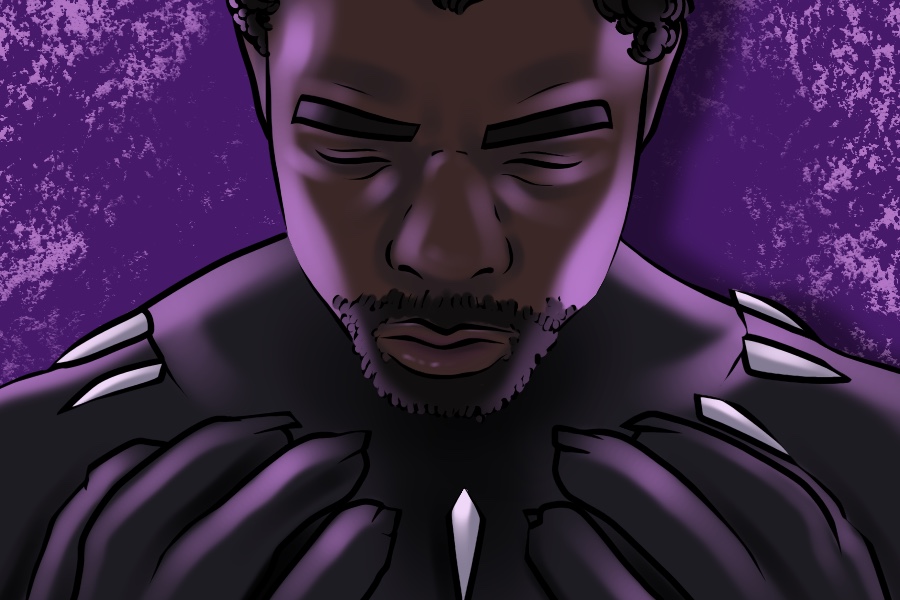
Marvel’s newest installation sends a much-needed empowering message
 After most late-night movie theater excursions, I return home exhausted and only slightly emotionally piqued. However, walking out of the movie theater after watching “Black Panther” left me buzzing with excitement and incredibly squealish. I couldn’t stop thinking about the movie for days, and the soundtrack has been playing on repeat on my Spotify.
After most late-night movie theater excursions, I return home exhausted and only slightly emotionally piqued. However, walking out of the movie theater after watching “Black Panther” left me buzzing with excitement and incredibly squealish. I couldn’t stop thinking about the movie for days, and the soundtrack has been playing on repeat on my Spotify.
I have always been a Marvel and DC comics geek, and every superhero movie leaves me with chills after finally delving into the universe of which I wish I were a part. Besides being deeply invested in the epic storylines, I usually enjoy the films due to my emotional attachment to the characters on screen. But the Black Panther is a relatively new character, having just entered the Marvel realm in “Captain America: Civil War” back in 2016. “Black Panther” brings a completely new perspective to the Marvel Universe, Hollywood and our own personal views, tossing the generic reasons for enjoying a film aside.
We don’t only love “Black Panther” because of the epic plot, the lovable, relatable, powerful aspects of the characters or even the amazing cinematography — which are all very significant factors in the film’s success. We love it because of the redemption it demands for a community that has been oppressed and discriminated against for too long, the lens through which it portrays a completely new vision of society and the realization that a superhero doesn’t need to conform to a stereotype. It’s a completely different movie that sets itself apart from other movies in the genre.
Through Ryan Coogler, a black director, “Black Panther” introduces powerful views that directly reference the struggles of the black community in a way that anyone can understand. The movie also sends a very clear message — we need more movies that introduce different perspectives in film, as proven by the widespread success of “Wonder Woman.” The DC universe film starred one of the most powerful female superheroes and differentiated itself from other recent films in the genre through securing a female director. “Wonder Woman” is a movie that empowered many women around the world, just as “Black Panther” has empowered many in the black community through the recognition of black culture and the acknowledgment of political and social issues that plague the community worldwide.
“Black Panther” is a film that echoes our current international society. The movie addresses political turmoils about the interference of large, powerful nations in other ones. The concept of the moral obligation to help struggling populations is brought to the forefront of the discussion in the film and very clearly scorns apathetic national policies. This political debate is something that plagues many countries around the world today, with problems like the refugee crisis and international human rights violations or discrimination. “Black Panther” condemns inaction toward issues of vulnerable groups, a powerful philosophy that many political leaders need to take into consideration.
I was also pleasantly surprised to encounter powerful, intelligent, hilarious women in “Black Panther,” whose personalities and strength superseded their looks and gender roles. In this movie, there were no women acting as empty shells whom I could barely relate to. Shuri, played by Letitia Wright, is a technological genius who develops necessities for Wakanda and is hilarious, powerful, intelligent and brave — as well as much loved by her brother without being defined by him. Nakia, played by Lupita Nyong’o, and Okoye, played by Danai Gurira, make a dangerous, entertaining, commanding pair. The women support T’Challa on their own terms, while each holds onto her own personal identities without being forced or suppressed into the typical role of taking care of men with absolutely no personal storyline or character development.
For the first time in a long time, I walked out of a movie theater with coexisting feelings of contentedness and fervor. “Black Panther” perfectly captures the essence of what it means to create a captivating film, demonstrate diverse perspectives and express powerful ideologies about tackling social issues. The success of meaningful movies over the same dull and trite ones will hopefully mean we can eventually see increased social awareness and more inclusivity in films.
Written by: Akshita Gandra — agandra@ucdavis.edu
Disclaimer: The views and opinions expressed by individual columnists belong to the columnists alone and do not necessarily indicate the views and opinions held by The California Aggie.



